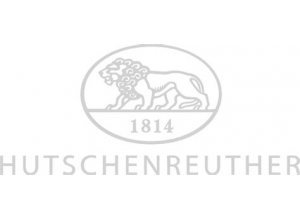C.M. Hutschenreuther
Hutschenreuther Porzellan - known to most consumers simply as the "noble porcelain brand" - was a family empire founded in 1814 and built on the knowledge and creativity of Carolus Magnus Hutschenreuther (1794 - 1845). As the son of Johann Heinrich Hutschenreuther - owner of the Thuringian porcelain manufactory Wallendorf in Lichte - porcelain making was in his cradle.
Around 1811, he met his future wife Justina Reuß in the Franconian town of Hohenberg an der Eger. His future father-in-law, the head forester Ludwig Reuß, introduced him to the nature and surroundings of his estates around Hohenberg Castle. C.M. Hutschenreuther quickly recognised the value of the mineral resources there for porcelain and ceramic production. As early as 1814, he began to produce a ceramic body at Hohenberg Castle using the raw materials he had dug himself.
In an application dated 10 September 1816, he applied for the mining of alumina and feldspar, "... which is of permanent occurrence for the porcelain industry here". With this application he laid the foundation stone for the entire Franconian porcelain industry, e.g. in Hohenberg, Mitterteich, Schirnding, Arzberg and Weiden, and thus also played a considerable part in the existence and performance of the entire porcelain industry in Europe.
On 7 November 1822, Carolus Magnus Hutschenreuther was granted a licence to set up a porcelain factory.
From then on, the name Hutschenreuther Porzellan - the lion brand - was considered the number 1 of German table porcelain for 177 years. In 1999, the company began to disintegrate, and since 2000 only the former name remains. After the bankruptcy, the probably most important porcelain factory in the world closed its doors.

